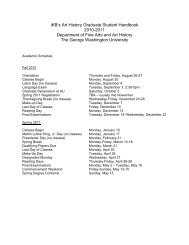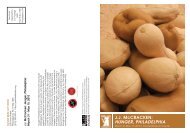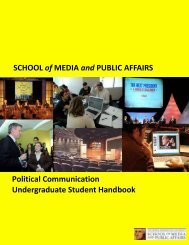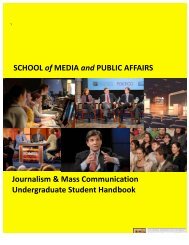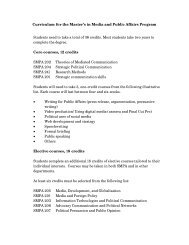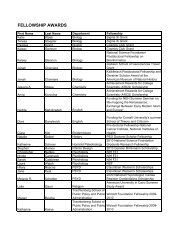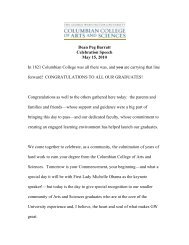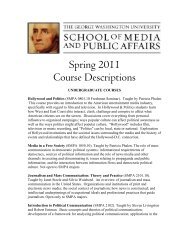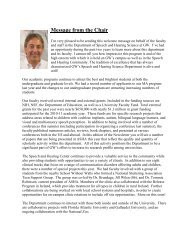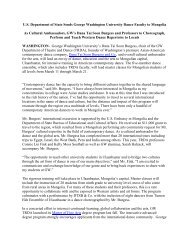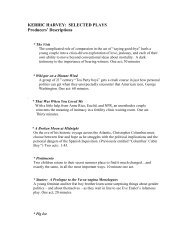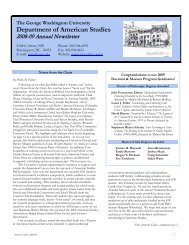Media Coverage and a Federal Grand Jury
Media Coverage and a Federal Grand Jury
Media Coverage and a Federal Grand Jury
Create successful ePaper yourself
Turn your PDF publications into a flip-book with our unique Google optimized e-Paper software.
were more akin to sentences, since “trial” often consisted of a harrowing<br />
ordeal such as being “cast into the depths of the sea;” if the suspect “sank,<br />
he was adjudged not guilty; if he swam, he was pronounced guilty.” Leroy<br />
D. Clark, The Gr<strong>and</strong> <strong>Jury</strong>: The Use <strong>and</strong> Abuse of Political Power (New<br />
York: Quadrangle, 1975), 8. In 1164, some 500 years before gr<strong>and</strong> juries<br />
were brought to colonial America, Britain’s King Henry II established the<br />
first known type of gr<strong>and</strong> jury—not to safeguard citizens from oppression<br />
but to wrest authority from rival feudal barons <strong>and</strong> the Church. Even the<br />
“independent” gr<strong>and</strong> juries of colonial times failed contemporary st<strong>and</strong>ards<br />
of justice. “Gr<strong>and</strong> juries have always served the interests of whichever<br />
political element could control them,” one scholar wrote. “Where gr<strong>and</strong> jurors’<br />
sympathies were with the patriot faction, as in pre-Revolutionary Massachusetts,<br />
they frustrated the Crown’s efforts to punish radicals. In other<br />
colonies, where they were sympathetic to Royal officialdom, they served<br />
Royal interests as well. The image of the gr<strong>and</strong> jury as a shield, important<br />
though it was in the minds of the framers of our Constitution, was based on<br />
a mythology of sorts.” Gary P. Naftalis <strong>and</strong> Marvin E. Frankel, The Gr<strong>and</strong><br />
<strong>Jury</strong>: An Institution on Trial (New York: Hill <strong>and</strong> Wang, 1977), 7-8. After<br />
the American Revolution, the onetime colonists who had been spared prison<br />
because of an independent gr<strong>and</strong> jury system were shaping the laws of the<br />
new republic. Thomas Jefferson <strong>and</strong> James Madison made sure to continue<br />
these “people’s panels” that had previously served the patriots so well by<br />
enshrining them in the Fifth Amendment to the Constitution. Jefferson,<br />
however, soon learned first-h<strong>and</strong> about the limits of the gr<strong>and</strong> jury system.<br />
In 1791, the future president complained that the opposition <strong>Federal</strong>ist Party<br />
had managed to transform gr<strong>and</strong> juries “from a legal to a political engine”<br />
by encouraging them “to become inquisitors on the freedom of speech.”<br />
Cowan, 36; Charles E. Goodell, “Where Did the Gr<strong>and</strong> <strong>Jury</strong> Go?” Harper’s<br />
(May 1973), 16; <strong>and</strong> U.S. Constitution, Amendment V.<br />
13 Clark, 5; <strong>and</strong> Naftalis <strong>and</strong> Frankel, 11.<br />
14 The dismissive phrase that gr<strong>and</strong> juries were capable of “indicting a ham<br />
s<strong>and</strong>wich” was coined by New York judge Sol Wachtler <strong>and</strong> later immortalized<br />
by writer Tom Wolfe in his novel Bonfire of the Vanities. Marcia<br />
Kramer <strong>and</strong> Frank Lombardi, “New Top State Judge: Abolish Gr<strong>and</strong> Juries<br />
& Let Us Decide,” NY Daily News (Jan. 31, 1985), 3; David Plotz, “Judicial<br />
Restraint,” Slate.com (April 16, 1997).<br />
15 Because of this problem, the British government, which invented the<br />
gr<strong>and</strong> jury system, abolished it in 1933, opting instead to weigh the validity<br />
of indictments in open court. Some states in the U.S. do the same, especially<br />
in the West, where the gr<strong>and</strong> jury system often failed to take root at<br />
the local level. In very rare instances, “runaway” gr<strong>and</strong> juries still assert<br />
themselves, wresting control of a criminal investigation away from prosecutors.<br />
U.S. News, 19; Clark, 8; Naftalis <strong>and</strong> Frankel , 7-8; Cowan, 36-7;<br />
<strong>and</strong> Goodell, 24, 16. See also Linda Himelstein, “Rocky Flats Gr<strong>and</strong> Jurors<br />
Seek Immunity to Tell All,” The Recorder (25 Nov. 1992), 3+.<br />
16 Goodell, 24, 22; <strong>and</strong> Cowan, 19.<br />
17 Clark, 73-87.<br />
24 • American Journalism —



